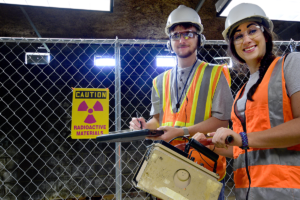
Is it Advisable to Decline Multiple Job Interviews for a Mental Health Break?
After resigning from your job, you may have immediately applied to new positions and received numerous interview requests. However, you might now realize the need to take a few months off for your mental well-being. Here’s a professional perspective on whether it’s acceptable to reject multiple interview invitations in favor of a rest period:
Consider Your Financial Situation
Before deciding to take a break, evaluate your financial stability. This includes assessing your savings and understanding your monthly expenses. Ensure you have enough savings to cover your living costs for the duration of your intended break plus an additional buffer period to accommodate the time it might take to secure a new job afterward. For example, if you plan to take a three-month break, ensure you have at least six months of savings to give yourself ample time to find a job post-break.
Assess the Job Market
Understanding the current job market conditions in your field is crucial. In a highly competitive or unstable job market, finding a new position after an extended break could be more challenging. Research the demand for your skills, the number of job openings, and the average time it takes for professionals in your field to find new employment. If the job market is favorable and positions are readily available, taking a break may not significantly impact your future job prospects. However, if the market is tight, it might be wiser to secure a position before taking time off.
Potential Resume Gaps
Consider the implications of a gap in your resume. Extended periods of unemployment can raise questions for potential employers. While taking a break is increasingly understood and accepted, particularly when related to mental health, it’s essential to be prepared to explain how you used the time productively. Engaging in freelance work, volunteer activities, or professional development can help bridge the gap and demonstrate to future employers that you remained proactive and committed to your career growth.
Mental Well-being vs. Career Progression
Prioritizing your mental health is vital, but it needs to be balanced with career progression. If your mental health is suffering, a break might be necessary to recharge and return stronger. However, you can explore other options such as negotiating a delayed start date with potential employers. This allows you to secure a position while still taking the time you need to rest. Additionally, maintaining a part-time role or engaging in short-term freelance projects can help keep you connected to the workforce while also giving you the flexibility to rest.
Advice from Others in Similar Situations
Learning from individuals who have taken similar breaks can provide valuable insights. Many emphasize the importance of financial preparedness and the challenges of re-entering the job market. For instance, some have found it difficult to secure interviews and positions after an extended break, while others have successfully managed their hiatus by planning their return strategically. Networking and staying engaged with industry trends can also ease the transition back into the workforce.
Strategize your return to the job market
Taking a break for your mental well-being is a personal decision that can be acceptable and beneficial if approached thoughtfully. If you are financially secure and aware of the potential challenges in re-entering the job market, prioritizing your mental health is entirely justified. To mitigate risks, consider attending interviews and negotiating start dates, or maintaining a part-time or freelance role during your break. This approach ensures you stay connected to the workforce while also taking the necessary time to rest and recuperate.
For further advice tailored to your specific circumstances, consulting with a career advisor or mentor can provide valuable insights and support. They can help you navigate the decision-making process, plan your break effectively, and strategize your return to the job market, ensuring a smoother transition and better outcomes for your career and well-being.